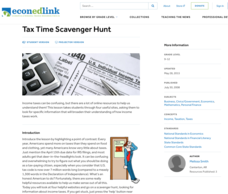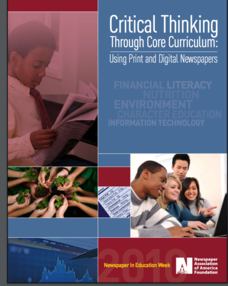National Endowment for the Humanities
The Preamble to the Constitution: A Close Reading Lesson
"We the people of the United States, in order to form a more perfect union..." These familiar lines begin the Preamble to the Constitution, but do learners know what they mean? A close reading exercise takes a look at the language of the...
Curated OER
Feudal Japan
An excellent overview of historical Japanese culture, this presentation could carry through a world history unit or a lesson on the history of Japan. Especially interesting are the slides that compare Japanese armor and castles to other...
Curated OER
EU Simulation: The European Council
Discover how government and the European Union works with this interactive activity. Small groups form to represent a country and create a profile. The instructor presents an issue to discuss and potential politicians then develop...
Constitutional Rights Foundation
Driver’s Licenses And Unauthorized Immigrants
Should driver's licenses be granted to unauthorized immigrants? That is the question class members grapple with in a lesson that asks them to first read a fact sheet that details the arguments for and against licensing unauthorized...
Curated OER
Progressive Reforms
Tenth graders analyze editorial cartoons focusing on progressive reform. They compare their analysis and research. Students discuss the cost of reform leading to the creation of a national income tax through the passage of the 16th...
Constitutional Rights Foundation
What Is Constitutional Democracy?
Rediscover the values at the heart of American democracy and what makes it unique with your pupils. Use a reading and discussion questions—in addition to an analytical activity—on the preamble to the Constitution. An additional activity...
Curated OER
For The Sake Of Security: U.S.A. Patriot Act & Bill of Rights
A substantive New York Times article about the U.S.A. Patriot Act, military tribunals, racial profiling, and the Bill of Rights forms the basis for a discussion of the complex interplay of fundamental American rights and the aftermath of...
Council for Economic Education
Tax Time Scavenger Hunt
Is a 1040EZ tax form really easy? Scholars investigate the complexities of the United States taxation system with an economics lesson. Using a wide variety of web sources, they interpret IRS taxation rules and regulations to better...
Curated OER
Video Game Violence: Explore Possible Impacts
Introduce middle schoolers to the issue of video game violence with a multifaceted approach. Learners complete a gaming survey, as well as read and discuss a news feature about violent video game sales and a handout on stimulus...
Newspaper Association of America
Critical Thinking through Core Curriculum: Using Print and Digital Newspapers
What is and what will be the role of newspapers in the future? Keeping this essential question in mind, class members use print, electronic, and/or web editions of newspapers, to investigate topics that include financial literary,...
Great Books Foundation
Discussion Guide for 1984
George Orwell's Nineteen Eighty-Four, published in 1949, can seem strangely prophetic when compared to modern news events and politics. Readers of Orwell's dystopian classic sharpen their critical thinking skills by engaging in a shared...
Curated OER
Assembling the Best Possible Cabinet
Students organize a list of qualities that a person must have to become a Prime Minister in Canada, and in groups discuss the quality of choices made by each group. They compare/contrast the list with the current Prime Minister.
Curated OER
United States & Canada: How Are We The Same? How Are We Different?
Students compare and contrast similarities and differences between Canada and the US. In this geography lesson, students read various articles and identify similarities and differences in economies, cultures, geography, climate, and...
Curated OER
Political Movement: Political Parties
Students explore politics by researching Australian government law. In this political parties instructional activity, students define the different active parties in Australia and their roles within the country. Students complete a word...
Curated OER
Presidential Briefing
In this comparative government worksheet, students follow the steps provided to form a National Security Council and then brief the President on long-term goals for the nation. Students prepare written briefs with charts and graphics...
Curated OER
Getting to Democracy
Students define democracy and analyze the conditions needed for democracy to flourish. Students research governments in the Middle East to determine how and if they have any form of democracy within their government.
Curated OER
1st Grade Math: Greater Than, Less Than
First graders participate in a variety of math activities that emphasize the concepts of greater than, less than, and equal to. They order numbers on the number line, compare numbers, create letters using numbers on a 1-100 number chart,...
Curated OER
Athens and Sparta Comparison
In this World History instructional activity, students compare and contrast the Athens to the Spartans. They define their physical, intellectual, and military characteristics, as well as the form of government established. Finally,...
Curated OER
Compare/Contrast: The United States and Alaska Constitutions
Students compare and contrast the United States and Alaska Constitution. After reading each preamble, they identify the reasons for each constitution to be drafted and discuss what they reveal about citizens responsiblity in government....
Curated OER
1930 Census and the Consitution
Learners read the Constitution and discuss the importance of enumeration. In this Census instructional activity, students complete a Census schedule and discuss the job skills of applicants. Learners research Census data to compare and...
Curated OER
What is the Average Height of Your Class?
In this statistics lesson plan, learners use an on-line form generator create a class-specific form, then complete the form, view a graph and data analysis, and draw conclusions.
Curated OER
Society, Cyberspace and the Future
Students locate information on the rapid growth of world population and consumption needs through the use of Internet, Cd-ROMs, laser dics and other media. They use spreadsheet to present data gathered on world population growth between...
Curated OER
Art and Patriotic Culture
Art forms, especially government-sponsored "poster art", very effectively conveyed specific cultural values during World War II. Understanding the role that visual images play in expressing issues and ideas is critical to developing...
Curated OER
Hitler's Fatal Gamble
Students consider the differences between totalitarianism and democracy. In this comparative politics lesson, students will read a handout describing the major components that comprise totalitarianism and democracy, then they will...

























